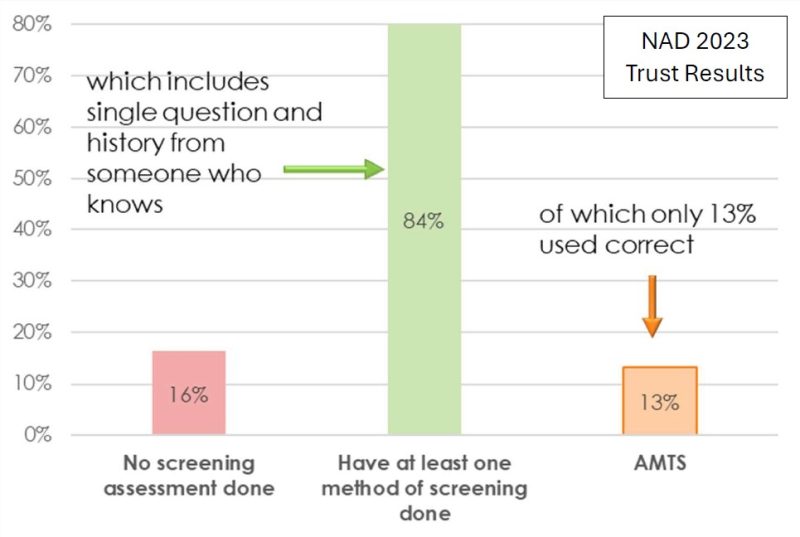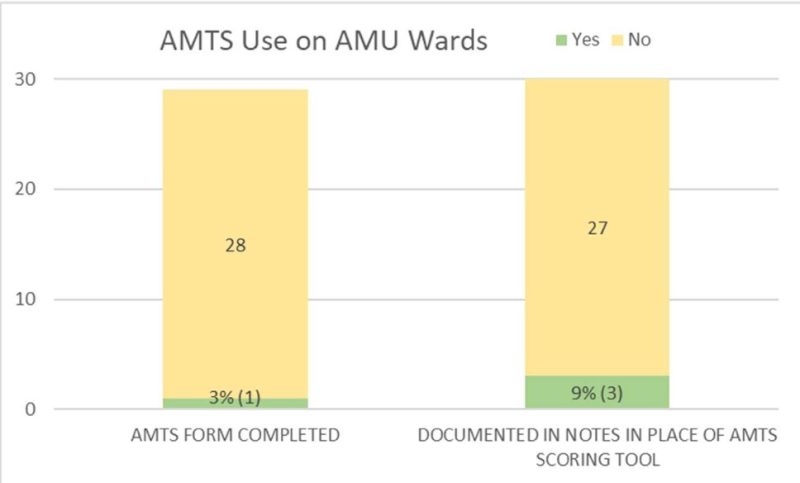Importance of AMTS Dementia Assessment Tool
June 6, 2024
Importance of AMTS Dementia Assessment Tool
Early detection is the key to successfully tackling Dementia, being an umbrella term of symptoms of a neurological condition among people aged over 65. Therefore, screening all admitted patients over the age of 65 years via a standardised cognitive test, can provide an important opportunity to identify cognitive impairment. This can speed up the diagnosis process and improve accessibility to support for People Living with Dementia (PLWD) and their carers and where appropriate, treatment commenced. Often people are turned away from services without a diagnosis so the faster a diagnosis is made, the better outcomes are anticipated.
What is Dementia cognitive impairment assessment?
National guidance clearly states that all Elderly patients aged 65 and over on admission (usually the first place would be AMU) should have a proper cognitive assessment.
The recent National Audit of Dementia (NAD) show that we are not particularly good at doing or recording an Abbreviated Mental Test Scoring (AMTS) assessment – from a sample of 135 patients, 84% of patients included at least one method of assessing delirium and/or dementia, but only 13% had the recognised AMTS recorded (Graph 1).
There is one side to that (the golden rule);“if it’s not written down, it didn’t happen”. But more importantly, we may be missing signs of early dementia and ensuring appropriate therapies are started, and where appropriate medication (‘Live well with Dementia’)


Are we using AMTS Dementia Assessment Tool?
We recently conducted a one-day observation audit for all patients aged 65+ on AMU wards across both acute hospital sites and the results confirmed what’s long been perceived as a problem area (Graph 2). Despite there being an AMTS Dementia assessment form on UNITY for some time already, it’s not being utilised as clearly indicated by audit data. Discussions with clinicians on the wards during the audit day in May 2024, revealed most medics were not aware of the form.
Why it’s important to use the AMTS tool on UNITY?
It will make data collection for NAD swifter and smoother, as it’s easily identified in Form Browser. Also allows local monitoring for The Vulnerable Adults Team (incl. Dementia Nurse) resulting in better identification for medics when they should request GP to FU within discharge letters. Overall, this work also feed into the national and Trust concepts of ‘Right Care at the Right Time’ and ‘Getting it Right the First Time’ as well as the national strategy of ensuring patients ‘Live Well with Dementia’.
See our quick guide on how to access the AMTS Dementia assessment form on UNITY.
https://connect2.swbh.nhs.uk/amts-dementia-screening-unity-guide/
For Dementia training with Dementia Nurse please get in touch with team administrator Rugina Begum: r.begum19@nhs.net
If you would like to do an audit in your area on Dementia, please contact the Clinical Effectiveness team – swbh.AuditTeam-ClinEffec@nhs.net
Click here to access the clinical effectiveness resources.